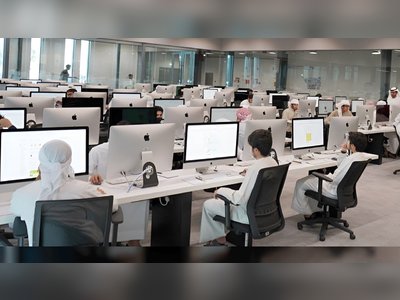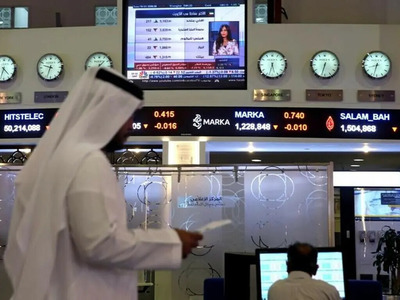
UAE Ministry of Higher Education Revamps University Licensing and Accreditation System
New regulations aim to enhance efficiency and streamline processes for higher education institutions.
The UAE Ministry of Higher Education and Scientific Research has initiated reforms to improve the licensing and accreditation systems for higher education institutions, seeking to create a more efficient and transparent framework.
This new regulatory approach employs a risk-based management system designed to expedite the renewal process for academic licenses.
Under the new guidelines, lower-risk institutions will receive a six-year license, with evaluations every three years, while higher-risk institutions will be issued a two-year license requiring annual monitoring.
The updated procedure implements standardized performance indicators and measurable outcomes for all accredited institutions operating in the UAE.
Dr. Mohammed Al Mualla, Undersecretary of the Ministry, highlighted that this framework offers a consistent evaluation mechanism, which is essential for maintaining transparency across institutional assessments.
Documentation requirements have been significantly reduced; newly established institutions must now provide only five documents for licensing, a substantial decrease from 28. Similarly, initial academic program accreditation has seen a decrease in required documentation from 13 to one document.
The requirements for license renewal also see a reduction from over 11 documents to just one submission.
Existing institutions aiming to accredit new programs will only submit one document instead of the previous 13.
The new regulations clarify pathways for both new and existing institutions regarding licensing and accreditation processes.
Institutions are now required to obtain approval from the Ministry prior to adding or closing any academic unit.
To streamline licensing further, procedures will be unified across the Ministry and local educational authorities, ensuring that local approvals lead to immediate ministry licensing.
Academic programs that have international accreditation will now be recognized automatically without additional procedural requirements.
These reforms are applicable to all existing and newly established higher education institutions licensed by the Ministry of Higher Education and Scientific Research, thereby reinforcing the UAE's commitment to maintaining a robust and high-quality educational infrastructure.
In a separate initiative, Abu Dhabi City Municipality has launched a tree-planting initiative aimed at enhancing environmental sustainability within the emirate.
Titled 'Planting the Roots of a Sustainable Future,' this initiative will see the planting of 300 trees in Al Masar Park, Khalifa City, as part of the activities surrounding 2025, which has been designated as the 'Year of the Community.' Miral and ALEC are partnering with the municipality, highlighting their commitment to environmental conservation as a critical component of their corporate social responsibility.
More than 200 participants, including employees from various entities and approximately 80 students from local educational institutions, actively participated in planting 200 Ghaf, 50 Delonix Regia, and 50 Azadirachta Indica trees, promoting environmental awareness and the importance of sustainability.
The initiative aims not only to increase greenery in the area but also to educate participants about the significant ecological and cultural roles of Ghaf trees, which are recognized for their contribution to the Middle East's ecosystem.
Taghrid AlSaeed, Executive Director of Marketing, Communications, and Events at Miral, noted that the initiative aligns with efforts to cultivate a collective responsibility towards nurturing the environment and fostering a sustainable future.
Public-private partnerships are emphasized as crucial to promoting environmental sustainability within the emirate.
UAE's standing as a leader in entrepreneurship was further affirmed when the nation was ranked first globally for the fourth consecutive year in the Global Entrepreneurship Monitor (GEM) report for 2024/2025. The UAE was recognized as the best environment for entrepreneurship among 56 economies evaluated.
The Ministry of Economy reported that the UAE topped 11 out of 13 indicators in the high-income countries category, which measured attributes essential for supporting entrepreneurial ecosystems, such as access to funding, supportive government policies, and educational integration of entrepreneurship.
UAE officials acknowledged the achievement as a reflection of the country’s vision and leadership in developing a comprehensive framework for small and medium enterprises.
Investments exceeding $8.7 billion have been identified as key factors in enhancing innovation and supporting the growth of small and medium-sized enterprises within the context of the nation’s broader economic strategies.
This new regulatory approach employs a risk-based management system designed to expedite the renewal process for academic licenses.
Under the new guidelines, lower-risk institutions will receive a six-year license, with evaluations every three years, while higher-risk institutions will be issued a two-year license requiring annual monitoring.
The updated procedure implements standardized performance indicators and measurable outcomes for all accredited institutions operating in the UAE.
Dr. Mohammed Al Mualla, Undersecretary of the Ministry, highlighted that this framework offers a consistent evaluation mechanism, which is essential for maintaining transparency across institutional assessments.
Documentation requirements have been significantly reduced; newly established institutions must now provide only five documents for licensing, a substantial decrease from 28. Similarly, initial academic program accreditation has seen a decrease in required documentation from 13 to one document.
The requirements for license renewal also see a reduction from over 11 documents to just one submission.
Existing institutions aiming to accredit new programs will only submit one document instead of the previous 13.
The new regulations clarify pathways for both new and existing institutions regarding licensing and accreditation processes.
Institutions are now required to obtain approval from the Ministry prior to adding or closing any academic unit.
To streamline licensing further, procedures will be unified across the Ministry and local educational authorities, ensuring that local approvals lead to immediate ministry licensing.
Academic programs that have international accreditation will now be recognized automatically without additional procedural requirements.
These reforms are applicable to all existing and newly established higher education institutions licensed by the Ministry of Higher Education and Scientific Research, thereby reinforcing the UAE's commitment to maintaining a robust and high-quality educational infrastructure.
In a separate initiative, Abu Dhabi City Municipality has launched a tree-planting initiative aimed at enhancing environmental sustainability within the emirate.
Titled 'Planting the Roots of a Sustainable Future,' this initiative will see the planting of 300 trees in Al Masar Park, Khalifa City, as part of the activities surrounding 2025, which has been designated as the 'Year of the Community.' Miral and ALEC are partnering with the municipality, highlighting their commitment to environmental conservation as a critical component of their corporate social responsibility.
More than 200 participants, including employees from various entities and approximately 80 students from local educational institutions, actively participated in planting 200 Ghaf, 50 Delonix Regia, and 50 Azadirachta Indica trees, promoting environmental awareness and the importance of sustainability.
The initiative aims not only to increase greenery in the area but also to educate participants about the significant ecological and cultural roles of Ghaf trees, which are recognized for their contribution to the Middle East's ecosystem.
Taghrid AlSaeed, Executive Director of Marketing, Communications, and Events at Miral, noted that the initiative aligns with efforts to cultivate a collective responsibility towards nurturing the environment and fostering a sustainable future.
Public-private partnerships are emphasized as crucial to promoting environmental sustainability within the emirate.
UAE's standing as a leader in entrepreneurship was further affirmed when the nation was ranked first globally for the fourth consecutive year in the Global Entrepreneurship Monitor (GEM) report for 2024/2025. The UAE was recognized as the best environment for entrepreneurship among 56 economies evaluated.
The Ministry of Economy reported that the UAE topped 11 out of 13 indicators in the high-income countries category, which measured attributes essential for supporting entrepreneurial ecosystems, such as access to funding, supportive government policies, and educational integration of entrepreneurship.
UAE officials acknowledged the achievement as a reflection of the country’s vision and leadership in developing a comprehensive framework for small and medium enterprises.
Investments exceeding $8.7 billion have been identified as key factors in enhancing innovation and supporting the growth of small and medium-sized enterprises within the context of the nation’s broader economic strategies.
Translation:
Translated by AI










